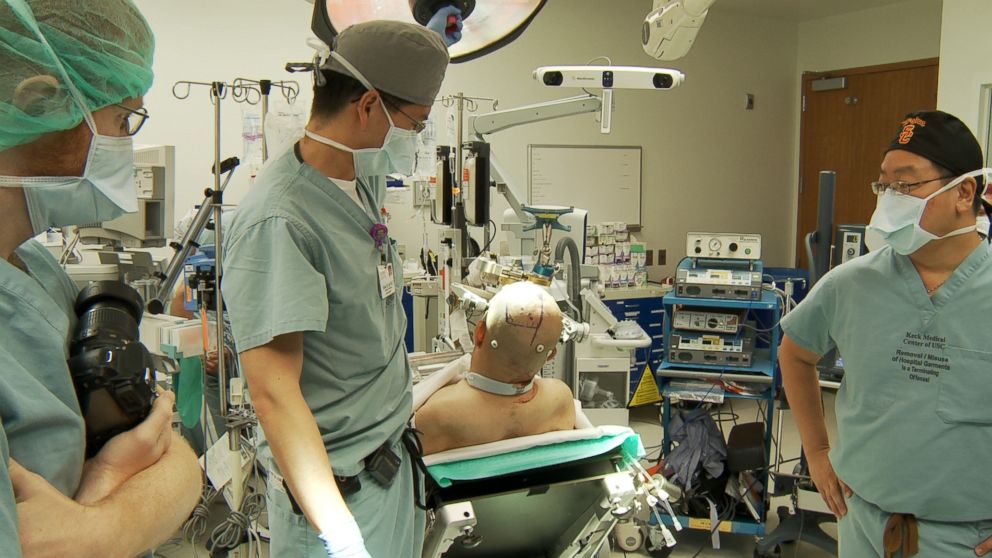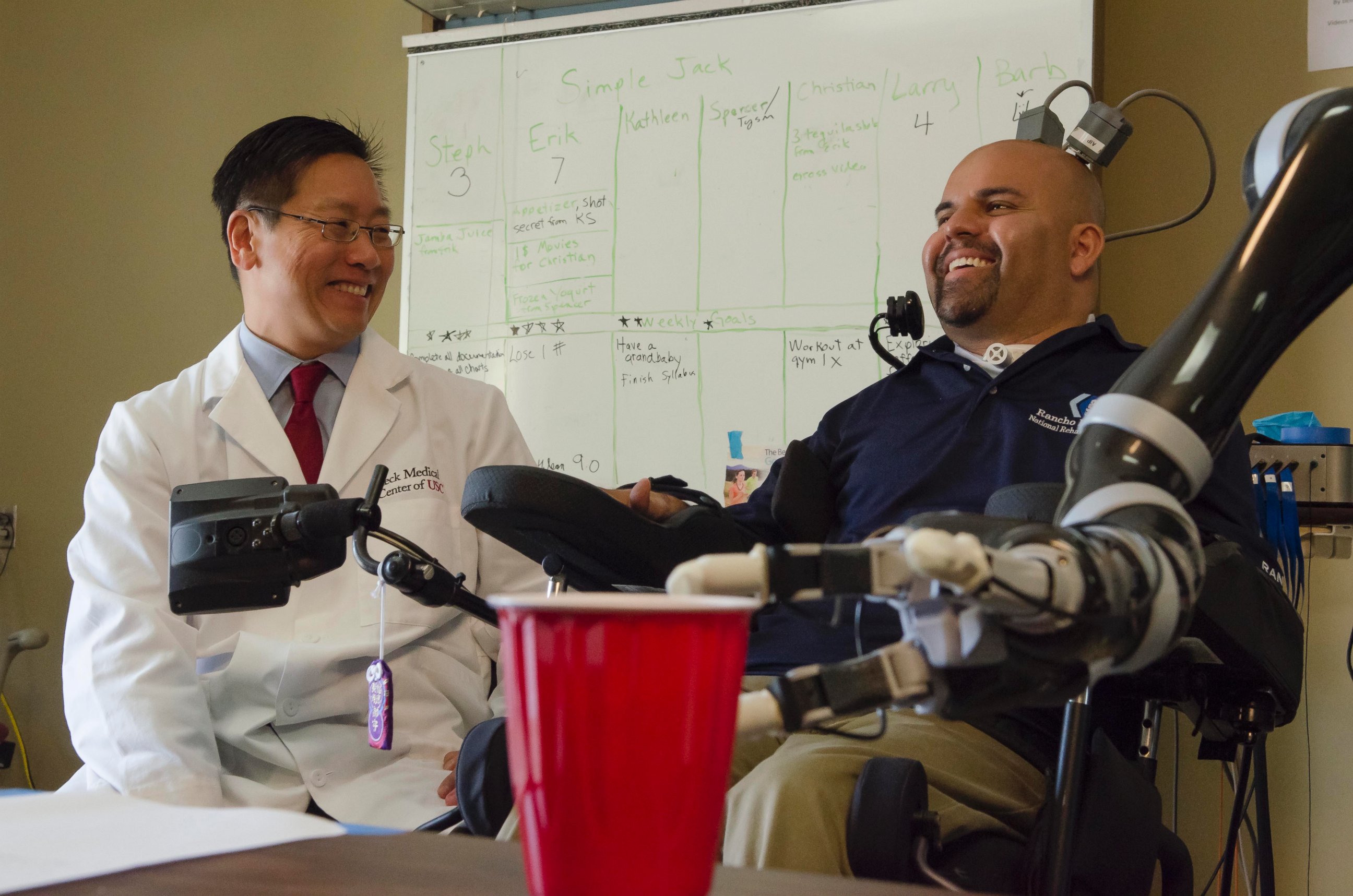Paralyzed Man Drinks Beer by Moving Robotic Arm With His Mind
Erik Sorto hasn't moved his arms or legs in more than 10 years.
— -- Erik Sorto hasn't been able to move his arms or legs in more than a decade, but he was recently able to pick up a beer and drink it thanks to a robotic arm.
Sorto, 34, was paralyzed from the neck down by a gunshot injury when he was 21. Now, thanks to a joint project by Caltech, Keck Medicine of USC and Rancho Los Amigos National Rehabilitation Center, he has become the first patient to have a device surgically implanted into the region of his brain that plans movements, allowing him to move a robotic arm.
"He comes in and he’s plugged in like 'The Matrix,'" Dr. Mindy Aisen, chief medical officer and principal investigator of the Spinal Cord Injury Model System at Rancho, told ABC News, adding that Sorto has exceeded every expectation. "He's painted pictures, made the smoothies. It's been a wonderful experience. It's a very good thing for our patients who are paralyzed to see such tech wizardry."

For months, Aisen said with Sorto and told him to imagine moving his hand.
"He just -- nothing happened," she said.
So, they turned up the audio so he could hear the sound of his neurons and know that they were working.
"I was there the day it all clicked. He was looking at the robot arm and he was perspiring," she said. "He started to laugh, to relax. He said, 'Thumbs up, thumbs down. Thumbs up, thumbs down.'"
And he did it. From there, he gradually learned to perform tasks, from making a smoothie to drinking a beer.
"The project is much bigger than the science fiction excitement of Eric," Aisen said, explaining that it offers hope for patients who are "locked in" due to ALS severe strokes and other injuries.




